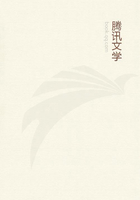OCTOBER 28th, 1851.
THE political movement of the middle class or bourgeoisie, in Germany, may be dated from 1840. It had been preceded by symptoms showing that the moneyed and industrial class of that country was ripening into a state which would no longer allow it to continue apathetic and passive under the pressure of a half-feudal, half-bureaucratic Monarchism. The smaller princes of Germany, partly to insure to themselves a greater independence against the supremacy of Austria and Prussia, or against the influence of the nobility of their own States, partly in order to consolidate into a whole the disconnected provinces united under their rule by the Congress of Vienna, one after the other granted constitutions of a more or less liberal character. They could do so without any danger to themselves; for if the Diet of the Confederation, this mere puppet of Austria and Prussia, was to encroach upon their independence as sovereigns, they knew that in resisting its dictates they would be backed by public opinion and the Chambers; and if, on the contrary, these Chambers grew too strong, they could readily command the power of the Diet to break down all opposition. The Bavarian, Wurtemberg, Baden or Hanoverian Constitutional institutions could not, under such circumstances, give rise to any serious struggle for political power, and, therefore, the great bulk of the German middle class kept very generally aloof from the petty squabbles raised in the Legislatures of the small States, well knowing that without a fundamental change in the policy and constitution of the two great powers of Germany, no secondary efforts and victories would be of any avail. But, at the same time, a race of Liberal lawyers, professional oppositionists, sprung up in these small assemblies: the Rottecks, the Welckers, the Roemers, the Jordans, the Stuves, the Eisenmanns, those great "popular men" (Volksmanner) who, after a more or less noisy, but always unsuccessful, opposition of twenty years, were carried to the summit of power by the revolutionary springtide of 1848, and who, after having there shown their utter impotency and insignificance, were hurled down again in a moment. These first specimen upon German soil of the trader in politics and opposition, by their speeches and writings made familiar to the German ear the language of Constitutionalism, and by their very existence foreboded the approach of a time when the middle class would seize upon and restore to their proper meaning political phrases which these talkative attorneys and professors were in the habit of using without knowing much about the sense originally attached to them.
German literature, too, labored under the influence of the political excitement into which all Europe had been thrown by the events of 1830.
A crude Constitutionalism or a still cruder Republicanism, were preached by almost all writers of the time. It became more and more the habit, particularly of the inferior sorts of literati, to make up for the want of cleverness in their productions, by political allusions which were sure to attract attention. Poetry, novels, reviews, the drama, every literary production teemed with what was called "tendency," that is with more or less timid exhibitions of an anti-govermental spirit. In order to complete the confusion of ideas reigning after 1830 in Germany, with these elements of political opposition there were mixed up ill-digested university-recollections of German philosophy, and misunderstood gleanings from French Socialism, particularly Saint-Simonism; and the clique of writers who expatiated upon this heterogeneous conglomerate of ideas, presumptuously called themselves "Young Germany," or "the Modern School." They have since repended their youthful sins, but not improved their style of writing.
Lastly, German philosophy, that most complicated, but at the same time most sure thermometer of the development of the German mind, had declared for the middle class, when Hegel in his "Philosophy of Law" pronounced Constitutional Monarchy to be the final and most perfect form of government.
In other words, he proclaimed the approaching advent of the middle classes of the country to political power. His school, after his death, did not stop here. While the more advanced section of his followers, on one hand, subjected every religious belief to the ordeal of a rigorous criticism, and shook to its foundation the ancient fabric of Christianity, they at the same time brought forward bolder political principles than hitherto it had been the fate of German ears to hear expounded, and attempted to restore to glory the memory of the heroes of the first French Revolution.
The abstruse philosophical language in which these ideas were clothed, if it obscured the mind of both the writer and the reader, equally blinded the eyes of the censor, and thus it was that the "young Hegelian" writers enjoyed a liberty of the Press unknown in every other branch of literature.















